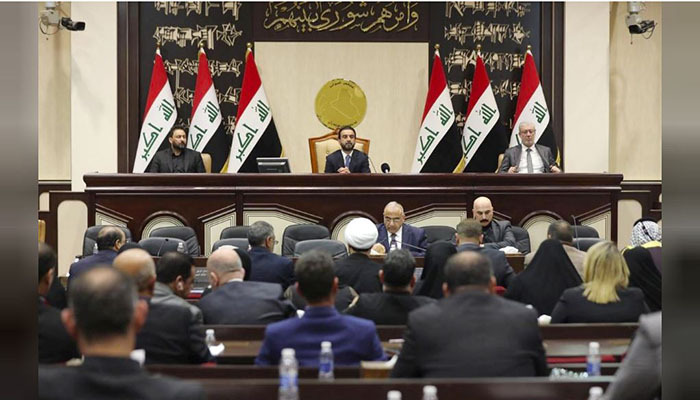Iraq calls for foreign forces to leave after U.S. killing of Iran commander
Some 5,000 U.S. troops remain in Iraq, most in an advisory role
January 05, 2020

Iraq’s parliament called on Sunday for U.S. and other foreign military forces to leave amid a growing backlash against the U.S. killing of a top Iranian military commander that has heightened fears of a wider Middle East conflict.
In a war of words between Iran and the United States Secretary of State Mike Pompeo said Washington would target any Iranian decision-makers it chose if there were further attacks on U.S. interests by Iranian forces or their proxies.
Qassem Soleimani was killed on Friday in a U.S. drone strike on his convoy at Baghdad airport, an attack that took U.S.-Iranian hostilities into uncharted waters and stoked concern about a major conflagration.
As Washington and Tehran, longtime foes, assailed each other with threats and counter-threats, the European Union, Britain and Oman urged them to make diplomatic efforts to defuse the crisis.
The Iraqi parliament passed a resolution calling on the government to work to end all foreign troop presence, reflecting the concern of many in Iraq that the strike could engulf them in a major war between two bigger powers long at odds in Iraq and across the region.
“The Iraqi government must work to end the presence of any foreign troops on Iraqi soil and prohibit them from using its land, air space or water for any reason,” it said.
Parliamentary resolutions, unlike laws, are non-binding to the government. But this one is likely to be heeded: Prime Minister Adel Abdul Mahdi had earlier called on parliament to end foreign troop presence as soon as possible.
Despite decades of enmity between Iran and the United States, Iranian-backed militia and U.S. troops fought side by side during Iraq’s 2014-17 war against Islamic State militants, their common enemy. Iraqi militia leader Abu Mahdi al-Muhandis was also killed in Friday’s strike.
Some 5,000 U.S. troops remain in Iraq, most in an advisory role.











